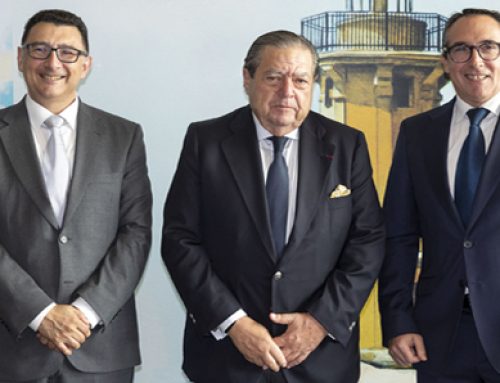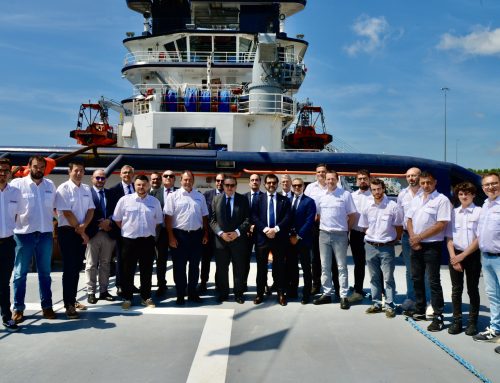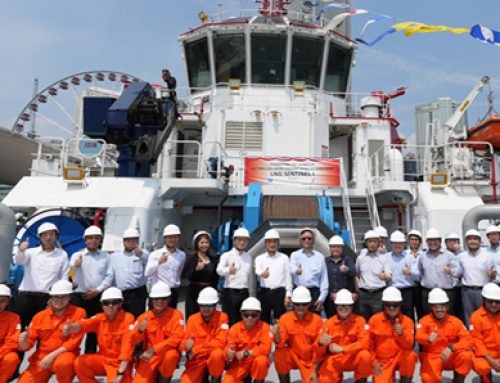CEO of Boluda Towage and Salvage Antonio Bordils gives a seminar in EDEM, as part of the management training course “The ABC of Internationalization”
Antonio Bordils, CEO of Boluda Towage and Salvage, Boluda Corporación Marítima’s towing and salvage division, emphasized that the company’s presence in Germany following the acquisition of the URAG tug company at the beginning of 2017, is aligned with Boluda’s aim “to expand into the great European ports and commit to improving maritime safety, because we have a truly international vocation”.
“Our objective is to grow,” he added, “we must commit to internationalization, to covering the greatest geographical area, because if you do not grow, you disappear; we are growing because our customers are global”.
Antonio Bordils spoke at the “Internationalization case study: Boluda Towage and Salvage in Germany” seminar on 29 September, part of “The ABC of Internationalization”, a course organized by EDEM School of Entrepreneurs located in La Marina de València. Boluda Towage and Salvage has been operating since early 2017 in the German ports of Hamburg, Bremerhaven, Bremen, Wilhelmshaven, Cuxhaven and Brake, with a fleet of 18 tugs and a staff of 140. “You need to be proactive; Boluda can work in Germany applying its own model”.
For the director of the towage division, Boluda Corporación Marítima’s international expansion model follows two parameters: to acquire companies already located in foreign countries or to partner with them. “We have to adapt to the markets without losing sight of our corporate goals, sometimes exporting our model, sometimes copying what they do well, because there are no fixed or clear models, we have to adapt to the markets”.
Boluda Towage and Salvage is currently the second largest towage company in Europe and third in the world.
After explaining the keys to making the best global business decisions, and developing a profitable and stable expansion process in the German market, he shared economic data on Germany. This competitive country, pioneer in shipping, has the leading European market, and the ports of Hamburg and Bremerhaven, the third and fourth busiest ports in Europe 2016 in terms of thousands of TEUs traffic. Bordils highlighted for EDEM students the benefits of working there: “In Germany there is a lower profit margin and more competition, but there is also a wider and relatively unregulated market where you can start up a company in only 15 days,” he affirmed.
Concluding his talk Antonio Bordils stated that the most important part of the internationalization process is adapting to the country and hiring local employees to reduce costs, and with regard to local partners, choosing one that can provide commercial relationships, clients or economic investment.




